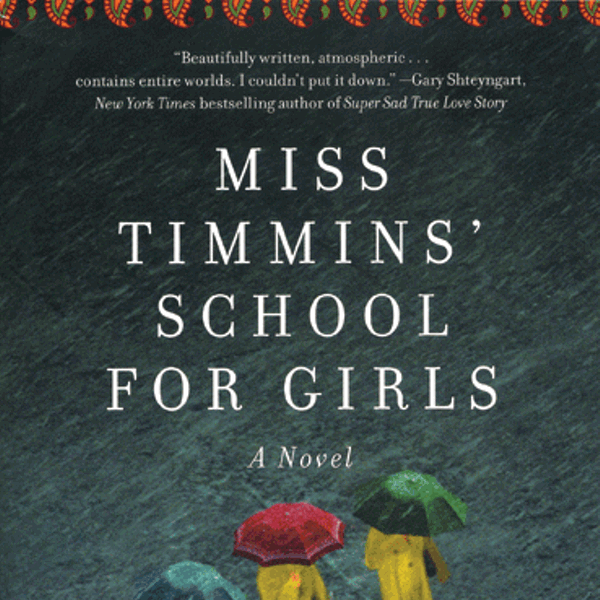Fred Rosen is not used to being interviewed. “I’m usually the one who’s asking the questions,” he says. “And we’re not sitting down for a coffee together, since most of my subjects are on death row.”
The Woodstock resident has more than a dozen books under his belt and four more on the way. His métier is true crime, and the titles tell the story: Flesh Collectors, Body Dump, Needle Work, Blood Crimes, Gang Mom (aka The Evil Mother), Deacon of Death, Doctors From Hell. They are plump trade paperbacks with eye-catching covers trumpeting “16 pages of shocking photos!” and bold-faced tag lines like “Their ghoulish appetites drove them to crimes that only began with murder.” Rosen’s best-known title, the cult classic Lobster Boy, is about the murder of a grotesquely deformed sideshow performer by his abused wife and son.
So how does a nice Jewish boy from Brooklyn, the son of a Polish immigrant furrier and a clothing buyer, wind up writing about stiffs and circus freaks?
“Do you want the real story or the bullshit story?” Rosen asks, dropping a wink. Urged to stick to the real one, he nods his approval. “I hate being lied to,” he says definitively.
Fred Rosen is an entertaining talker. His speech buzzes with wiseguy Brooklynese, and he’s given to sweeping pronouncements, salted with four-letter words. Today he is dressed in an olive-drab sweatshirt and chinos under a fringed western jacket, a get-up that seems to be equal parts soldier of fortune and cowboy.
As Rosen relates it, the real story starts with depression. From adolescence to an eventual diagnosis at 40, he suffered from untreated clinical depression, the deep, underwater affliction known as dysthymia. “My father was depressed his whole life,” he remarks. “I should have known I’d wind up in a psychopharmacologist’s office.”
He stares out the window at a chilly spring rain, fraught with film-noir fog. “That’s what I felt like every day. This weather.”
Finally, a doctor at the Payne Whitney Clinic prescribed Paxil. “Within six weeks, I was a different person. Coming out of depression was a learning curve—I had to learn how to live with the normal mood swings a normal person has. But I wasn’t scared to write anymore. It was like a dam broke.”
In fact, Rosen had been writing all along. After graduating from University of Southern California film school, he moved back to New York and found work as a technical writer, specializing in photography. He edited Studio Photography magazine and wrote a photography column for the New York Times, which led to an eight-year stint as a journalism professor at Hofstra University. Somewhere in there he cranked out a number of treatments for films and a couple of novels. A contact set him up with editor Paul Dinas, who turned down Rosen’s novel, but made him an offer he couldn’t refuse.
“I can still remember it,” Rosen says, setting the scene as he does in his books. “We were standing outside his office on Park and 33rd. It was a cold day in February, the wind was blowing, and he says to me, ‘Would you like to write a book about doctors who abuse their patients?’ My first response was no. I went to film school, you know? You dream you’re the future Bergman or something. And then I thought, what am I, crazy? I got nothing else going on.”
That book was Doctors From Hell, published in 1993. Rosen’s next, Chameleon: The Lives of Dorothy Proctor, is the story of a multiracial ex-prostitute and drug runner who, in various undercover guises, became a top informant for the Canadian Mounties. From then on, his subject was murder.
Rosen’s whole affect shifts as he talks about writing true crime. The toe of his cowboy boot taps with nervous energy as he leans forward, close to my face. “When I started, I felt more for the bad guy than the victim. I’m more into psychopathology—I don’t write whodunnits, I write whydunnits. I’m very interested in motivation, including my own.”
He is hypersensitive to claims of exploitation. “When these people come at me saying, ‘How can you make money off this? What about the victims’ families?’ I say, ‘Look, they’re talking to the press, some cnn reporter is going in there for the story and he’s getting paid. Why is this any different? No one’s getting exploited here. My name’s on the book, it’s the record of the case. The newspaper’s gone tomorrow. This stays. It’s in the Library of Congress.’”
Whether that record is gospel is subject to some debate. Rosen’s Amazon reader reviews are a love-him-or-hate-him mixed bag, and some critics hasten to point out inaccuracies. Nevertheless, he’s a self-proclaimed research freak, spending countless hours on the Internet and visiting the scene of the crime to grill the detectives and soak up atmosphere.
Rosen claims to have solved at least one murder by fingering one of the two skinhead brothers in Blood Crimes, and he also submitted controversial evidence in the Lobster Boy trial. Asked whether he’s ever thought one of the perps in his books might have been unjustly accused, Rosen shakes his head. “I’m not writing about cases where there’s only circumstantial evidence and the guy might be innocent. If I was, I’d handle it differently. The cases I do, the suspect has given a statement, there’s direct physical evidence linking him to the crime, it’s been adjudicated.” He goes on to assert, “More often than not, the jury system works. Sometimes it doesn’t—you get your O.J.s, your after-the-fact dna cases—but they’re the exceptions. I’m not for the death penalty. I don’t think it works; I think it creates more horror than it solves. But it doesn’t break my heart to see these guys on death row. Those two creeps from Flesh Collectors, I don’t want them back on the street. Ever.”
Does Fred Rosen lock his door? He looks astonished at the question. “Are you kidding? I’m from Brooklyn; of course I lock my door. I lock my windows.” He admits that writing so much about violent crime has affected his world view. “I’m much more attuned to potential danger. Your eye picks up certain cues faster, who’s crazy, who’s hiding something—you’re attuned to psychotic behavior in everyday life. People always think murder is somewhere else. Murder is not over there; it’s next door.”
His book Body Dump is quite literally next door for Hudson Valley residents. Set in Poughkeepsie, it recounts the recent case of Kendall Francois, a black serial killer who preyed on prostitutes, stashing their bodies inside his house.
Rosen writes all of his books under contract. “I can’t afford not to,” he says bluntly. “I’ve got a wife and kid.” (Rosen’s daughter is seven; he tries to protect her from seeing the crime scene photos that litter his office.) Sometimes he pitches a story, and sometimes an editor asks for him. Occasionally, under pressure for cash, he writes under a pseudonym. “I was offered this book about some sicko who hacked a girl’s arms off. It’s not my cup of coffee, even though that’s what sells.”
Who buys it? “It’s not who you think,” Rosen says. “Most true-crime books are bought by college-educated women, 21 and up. I think it’s the “there but for the grace of God” factor—they get that hit when they read the book, the vicarious thrill of putting themselves in the victim’s shoes. And of course the crime is always solved.”
It’s no surprise that Rosen’s literary heroes are Raymond Chandler and Ross MacDonald, or that he loves Westerns. “I see everything I write as a movie. It’s the way I was taught, the way it comes out. Plus I want to sell it.” Several of his true-crime books have been optioned, though none has been shot. “Lobster Boy has been in Development Hell for years. The producers, they’re saying, ‘How about that guy from The Station Agent?’ I say, ‘He’s a dwarf.’ Lobster Boy was normal proportions from the waist up. You know who could do it—the only actor who could do it? Johnny Depp.”
Rosen’s upcoming books show a slight change of palette. Born To the Mob, written with Frankie Saggio and subtitled “The True-Life Story of the Only Man to Work for All Five of New York’s Mafia Families,” will be released this month by Thunder’s Mouth Press as a trade paperback, and Cremation In America, an unlikely blend of social history and memoir, will be his first hardcover. Tracking Evil Minds, written with a professional profiler who broke the dc sniper case, is due in October; The Historical Atlas of American Crime in December. He is also at work on a history of mercenaries.
“In any given year, I’m probably working on two or three books at once. I’d like to slow up,” Rosen says, his foot tapping furiously. “Would you like some more coffee? It’s free.”
















